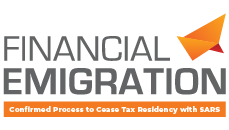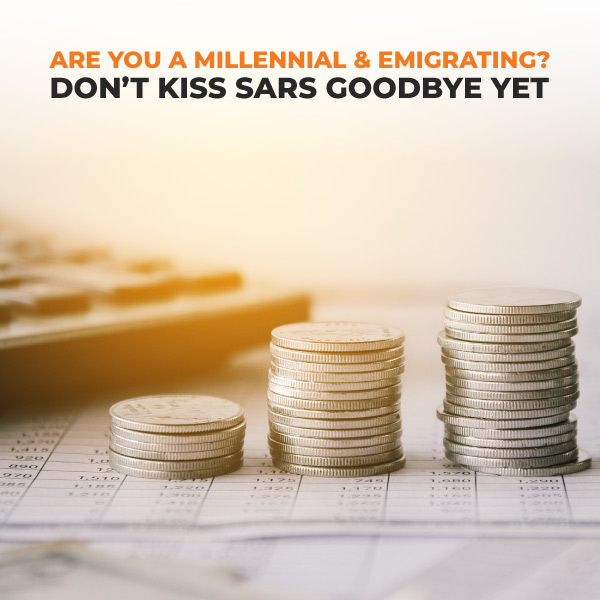ARE YOU A MILLENNIAL AND EMIGRATING? DON’T KISS SARS GOODBYE YET
As a South African millennial income earner, even if you’re moving abroad, you’ll still have to declare your worldwide income to SARS on an annual or provisional basis.
“Leaving South Africa does not automatically relieve you of your tax obligation,” says Victoria Lancefield, General Manager, Financial Emigration & Tax Residency at Tax Consulting South Africa.
In fact, by law, even if you pay tax to a foreign government, you’re still compelled to settle with SARS as well, resulting in double taxation.
So what can younger emigrants, dreaming of a fresh start in a new country, do to protect their income? “By making good decisions now, they can either reduce their tax obligation or completely eliminate it,” says Lancefield.
Tax risk
For many in this age range, employment is their main form of income. It’s also a period marked by financial firsts, like buying a home, starting a family, creating security through insurance, or venturing into the world of investing.
Relocating to another country is exciting but, at the same time, disruptive to finances. The last thing a younger couple needs is to find their personal economy crippled by an extra annual tax bill they never accounted for.
“Reviewing your tax position and understanding your exit options should be the very first item on your emigration to-do list,” says Lancefield.
The options
Of the main options available to prospective emigrants, which one they qualify for depends on their intent, that is, to leave South Africa permanently or to return after a temporary or long-term absence..
The first short-term option is to leverage a dual tax agreement, provided one exists between South Africa and the destination country. If so, expatriates will only pay one of the tax authorities. So it is essential to determine if such an arrangement is available beforehand.
The second option is that expatriates residing in a foreign region are exempt from South African tax on earnings up to R1.25 million, provided they are out of the country for 183 days or more during the year of assessment. However, they must be employed, and must still submit annual returns to SARS. People running businesses or deriving income from assets, like investments or rental properties, do not qualify.
The third option, and the most desirable for anyone leaving permanently, is financial emigration. Following this route will free emigrants from any further tax obligation on their foreign earned income to South Africa.Yet, it is an incredibly complex process that requires professional assistance.
The tax implications of each route are different, and it is important to consult with an expert to understand your tax status and which option you qualify for.
The right partner
Not all tax practitioners who submit returns to SARS are experienced in expatriate tax matters and financial emigration.
Both services are highly specialised, so applicants should seek out an advisor that deals with each in the daily course of their business.
It’s also critical that an expatriate tax consultant is backed by a strong legal component. “You may never go to court but good legal advice is critical to success in what could be an otherwise complicated and confusing process,” explains Lancefield.
AUTHOR

Victoria Lancefield
General Manager
Financial Emigration & Tax Residency CIMA Dip MA, ACCA Dip








